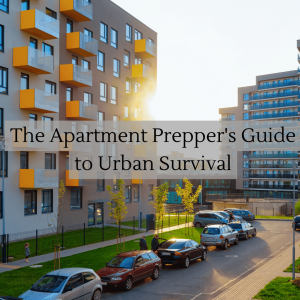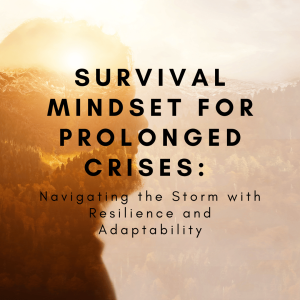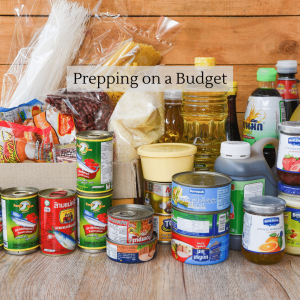Power outages can occur unexpectedly and disrupt our daily lives, leaving us without essential services and conveniences. While most power outages are relatively short-lived, there are instances where they can last for extended periods, such as during severe weather events or infrastructure failures. Prepping for extended power outages is crucial to ensure the safety and well-being of your household. In this article, we will explore ten essential tips and strategies to help you effectively navigate through extended power outages.
Prepping for Extended Power Outages: 10 Tips and Strategies
- Create an Emergency Kit: Prepare an emergency kit that includes essential items such as flashlights, batteries, a battery-powered radio, first aid supplies, non-perishable food, water, and a manual can opener. Keep this kit easily accessible in case of power loss.
- Stockpile Adequate Water: Water is essential for survival, so ensure you have enough stored for your family’s needs. Aim for at least one gallon per person per day for a minimum of three days. Store water in clean, airtight containers and replace it every six months.
- Have a Backup Power Source: Invest in a backup power source, such as a portable generator or solar panels, to provide electricity during extended power outages. Follow safety guidelines when using generators and ensure they are placed outdoors to prevent carbon monoxide poisoning.
- Learn Basic First Aid: During power outages, emergency medical services may be delayed. It is important to have a basic understanding of first aid techniques and keep a first aid manual in your emergency kit. Enroll in a first aid and CPR course to acquire essential skills.
- Preserve Refrigerated Food: To minimize food waste during a prolonged outage, keep refrigerator and freezer doors closed as much as possible. A fully stocked freezer can maintain its temperature for about 48 hours, while a half-full freezer can last around 24 hours. Consider using coolers with ice to store perishable items.
- Install Alternative Lighting Options: In addition to flashlights, consider alternative lighting options such as LED lanterns, solar-powered lights, or battery-operated candles. These can provide longer-lasting illumination and reduce reliance on limited battery supplies.
- Stay Informed: Keep a battery-powered or hand-cranked radio to stay updated on emergency broadcasts and news updates during power outages. Stay informed about the progress of the outage, safety instructions, and restoration efforts in your area.
- Plan for Communication: Ensure you have a backup method to communicate with others during power outages. Keep a charged power bank or a car charger for your mobile phone. Consider having a landline telephone that doesn’t rely on electricity.
- Maintain an Adequate Fuel Supply: If you rely on a generator for backup power, store an ample supply of fuel in a safe location. Regularly rotate your fuel reserves to prevent degradation. Follow proper storage guidelines and always exercise caution when handling flammable materials.
- Develop a Family Emergency Plan: Create a comprehensive emergency plan with your family. Identify a meeting point, discuss evacuation procedures if necessary, and establish communication protocols. Assign roles and responsibilities to each family member to ensure everyone’s safety.
Prepping for Extended Power Outages is essential to safeguard your family and minimize the impact of such situations. By following these ten tips and strategies, you can be well-equipped to navigate through prolonged periods without electricity. Remember, being proactive and having a comprehensive plan in place can make all the difference during challenging times. Stay prepared, stay informed, and stay safe.





